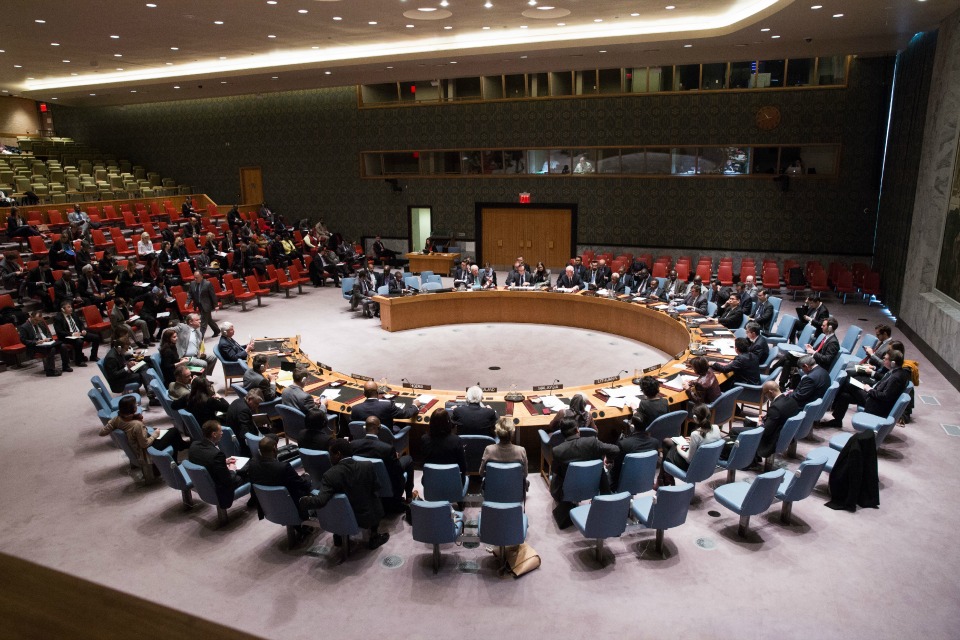"The United Kingdom has always been a strong supporter of Bosnia and Herzegovina's long term stability and prosperity."
Statement by Ambassador Matthew Rycroft of the UK Mission to the UN at the Security Council Meeting on the situation in Bosnia and Herzegovina

Thank you Madam President.
I thank High Representative Inzko for his briefing today.
It is fitting that my first statement in this Council is on Bosnia and Herzegovina. Early in my career I served in the British delegation at the Dayton Peace talks. I saw firsthand how the international community led by Dick Holbrooke came together to help end years of brutal fighting. Later, as the British Ambassador in Sarajevo from 2005 to 2008, I witnessed how far Bosnia had progressed after the war and saw the first steps taken towards a future in the EU and NATO. Although these steps have faltered, the United Kingdom has always been a strong supporter of Bosnia and Herzegovina’s long term stability and prosperity. I am pleased to reassert this commitment unambiguously in the Council today.
This year, Bosnia’s political leaders have an opportunity that they must not miss to stop the drift and accelerate the journey to a better future. They have a chance to implement the social and economic reforms their citizens expect and deserve. We must do our utmost to support them. I believe there are three areas in which we can do so. First, let us all give our full backing to the EU initiative on Bosnia and Herzegovina, first developed by the United Kingdom and Germany. The written commitment to reform by Bosnia’s leaders, including those in the Republika Srpska, is a sign that the initiative can succeed. The EU will fulfil its side of the bargain; the Stabilisation and Association Agreement will soon come into force. As British Ambassador to Bosnia when the SAA was signed seven years ago, I am amazed and disappointed that it has not yet come into force.
Bosnia’s leaders can now harness momentum to deliver meaningful reform. Their actions need to match their written commitments. Stabilising and stimulating Bosnia’s economy should be their priority. Because in an average group of five young Bosnians, three of them have no jobs. Public dissatisfaction is growing. The many levels of Bosnia’s government must now define their Agenda for Reform. If Bosnia’s leaders do not take this opportunity to reform, we may see a repeat of the anger that shook the streets of Sarajevo last year. The violence and challenges to law and order showed that tensions still lie just below the surface. On occasions tensions have been high this year, and we condemn the unacceptable attack against a police station in Zvornik last month. Though the frequency of such attacks may be low, their effects can be far reaching.
So second, this Council must continue its support to preserve the security and stability of Bosnia and Herzegovina. The 70th anniversary of World War II and the 20th anniversary of the Srebrenica Genocide this year illustrate that in every generation, Bosnians, Bosniaks, Bosnian Croats and Bosnia Serbs have suffered from conflict. Until security and stability is embedded across Bosnia and Herzegovina, we must do all we can to reassure this generation that we mean it when we say: never again.
The United Kingdom believes that the continued presence of EUFOR, with an executive mandate, is the best way to provide this reassurance. We advocate the retention of this vital asset when its mandate is up for renewal in November. And we also support the continued work of the High Representative and his efforts to fulfil the five objectives and two conditions which were set back in my time in Sarajevo and still have not been fully met.
Together, the international community has a continued role to play to deter those who question Bosnia and Herzegovina’s sovereignty and territorial integrity. Last month’s declaration by the SNSD on the independence of the Republika Srpska shows that there are those who still relish in division. Their proposed referendum is a clear breach of the agreement. The Republika Srpska does not have the right to secede. Borders will not be redrawn. And the EU position is simple and clear; only a united, functioning, effective state of Bosnia and Herzegovina will be offered EU membership, when it meets all the conditions.
Madam President, Let me close on my third point. In November we will mark the 20th anniversary of Dayton. For two decades, it has been up to Bosnia’s political leaders - supported by the international community - to overcome their narrow interests and find common ground. They have not always managed to do so, but they will continue to have our support. This year Bosnia and Herzegovina’s newly elected leaders have a chance to demonstrate to this Council that they can act in their collective national interest and end years of stagnation. We cannot do it for them.
Just as they showed at Dayton nearly 20 years ago, and in signing the SAA seven years ago, they have shown in their commitment to the EU initiative that they can find consensus, they can succeed and deliver real reform, they can set aside their differences for the greater prize of economic growth, stability and prosperity. They owe it to the Bosnian people to seize this opportunity.
Thank you Madam President.